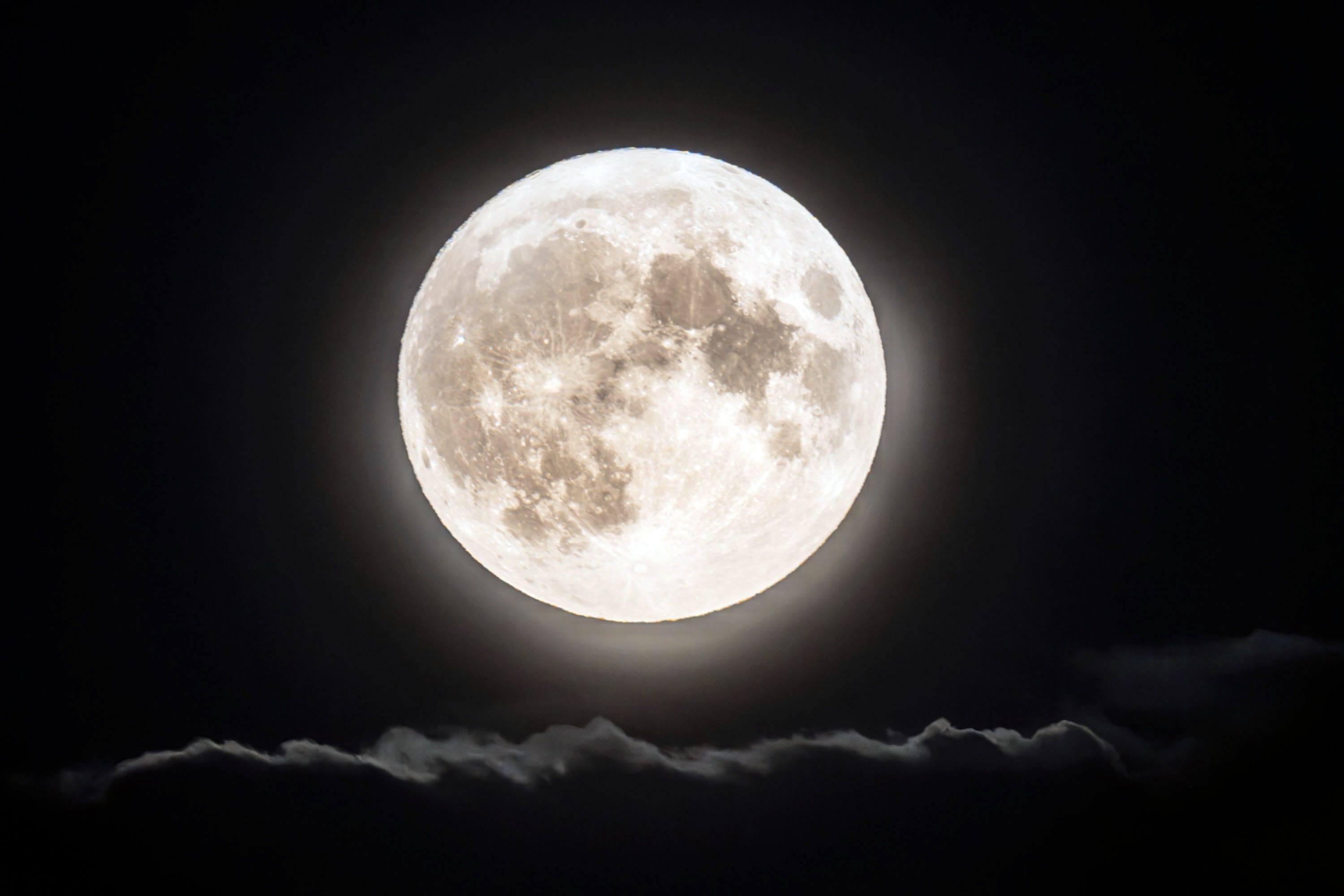‘Largest and brightest’ supermoon of the year set to delight skygazers
The moon will appear 14% bigger and 30% brighter compared with when it is furthest away.

Skygazers in the UK are set to be treated to the “largest and brightest” supermoon of the year on Thursday evening, astronomers say.
This month’s full moon, called the Hunter’s Moon, is the third of four supermoons in 2024.
During this time, the Earth’s natural satellite will appear around 14% bigger and 30% brighter.
The celestial event is expected to be visible after sunset and will gradually get brighter throughout the night.
Daniel Brown, associate professor in astronomy at Nottingham Trent University, said: “The October full moon appears as the largest and brightest supermoon of the four this year, being 76km closer than last month’s full moon.
“It is always exciting to notice changes in colour due to our atmosphere and explore the ‘moon illusion’ where the moon only seems to look huge given its proximity to the horizon, where there is context alongside buildings, trees and other features.
“If the moon is high in the sky and you don’t have that context, it seems just a distant object and much smaller.”
It is always exciting to notice changes in colour due to our atmosphere and explore the 'moon illusion' where the moon only seems to look huge given its proximity to the horizon
The term supermoon was coined by astrologer Richard Nolle in 1979 as either a new or full moon that occurs when the moon is within 90% of its closest approach to Earth.
Forecasters say the skies will mostly be clear across the UK, except for cloudy patches in western Scotland.
Jason Kelly, chief meteorologist at the Met Office, said: “Pretty much the whole of the UK has a good chance of clear skies this evening.
“Western Scotland will be a bit cloudier, perhaps preventing prolonged views of the moon here, but otherwise cloud amounts will be patchy and should not limit views of the supermoon or comet for prolonged periods of time.
“Isolated fog patches will form by midnight, with more extensive low cloud and fog forming during the early hours.
“This will mean a less favourable (but still moderate-to-high) chance of seeing the moon later in the night.”
Bookmark popover
Removed from bookmarks